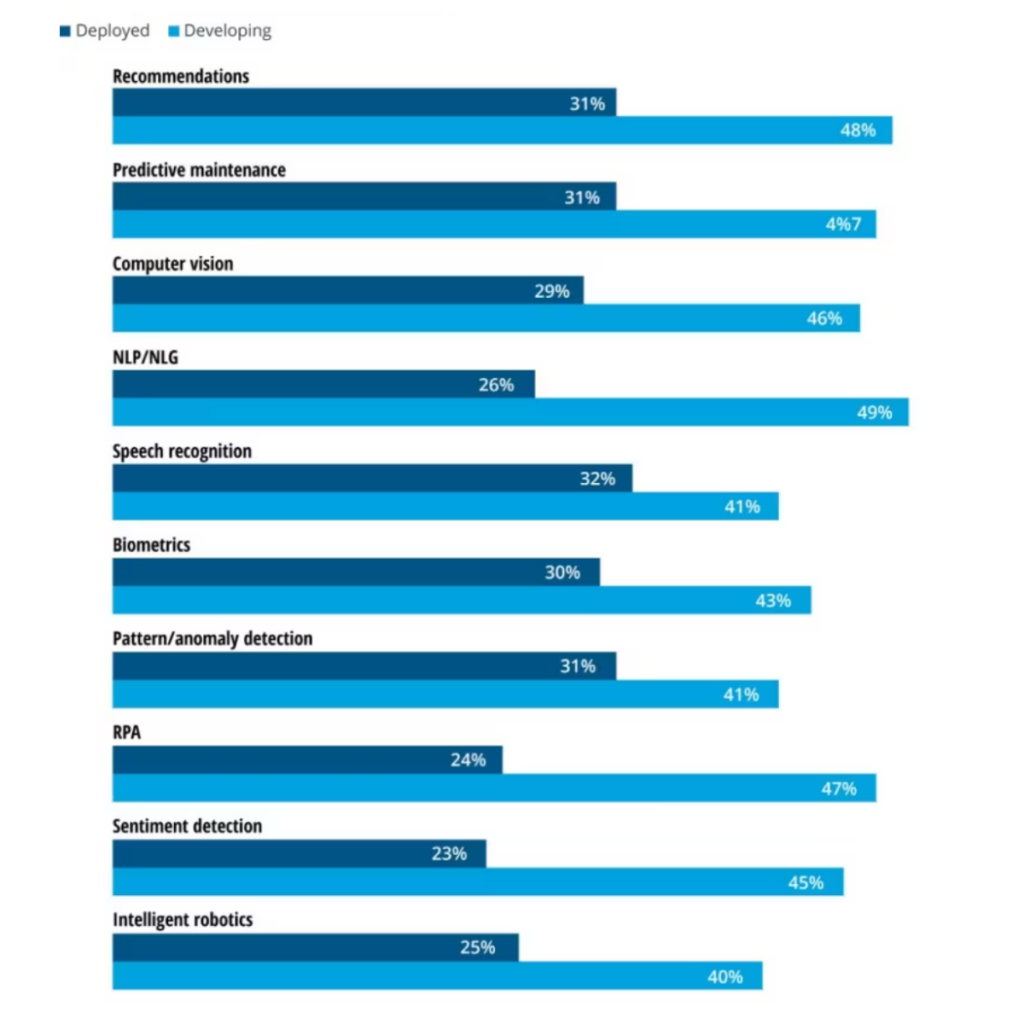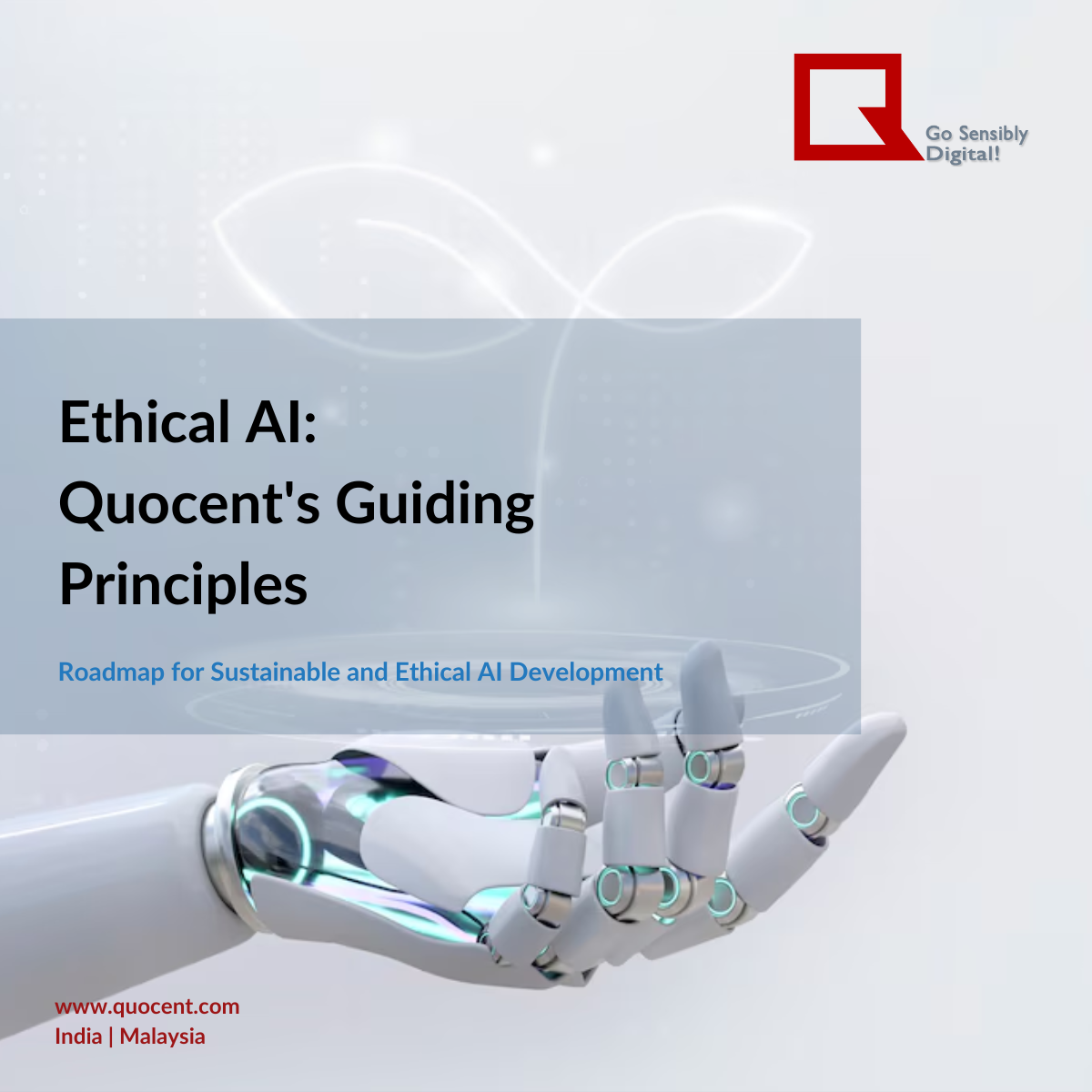As artificial intelligence (AI) becomes a transformative force across industries, questions of ethics and governance have taken centre stage. While AI offers immense potential for improving efficiency, innovation, and decision-making, it also brings challenges, including biases, transparency issues, and potential misuse. Organisations worldwide must not only harness the power of AI but also ensure its development and deployment are grounded in ethical principles and robust governance frameworks.
At Quocent, we are committed to leveraging AI in ways that not only drive meaningful value for our customers but also uphold ethical standards, ensuring responsible and sustainable AI adoption.
The Growing Importance of AI Ethics and Governance
The impact of AI on industries is undeniable:
- The global AI market size is projected to reach $1,591.03 billion by 2030, growing at a compound annual growth rate (CAGR) of 38.1%.
- Despite this growth, studies reveal that 42% of companies struggle to address ethical concerns in AI deployment.
AI’s ethical challenges include:
- Bias in AI Models: Biases in training datasets often lead to discriminatory outcomes, particularly in sensitive areas such as recruitment and lending.
- Lack of Transparency: Many AI models operate as “black boxes,” making their decision-making processes hard to interpret or explain.
- Data Privacy Concerns: With AI’s reliance on large datasets, organizations face mounting scrutiny over data collection and usage practices.
- Accountability Gaps: When AI systems fail, assigning responsibility remains a challenge, particularly in high-stakes areas like healthcare or autonomous vehicles.
Governments and organisations are addressing these issues through regulatory initiatives like the EU AI Act and industry-wide ethical guidelines. A wide range of AI techniques are still being developed and awaited to be deployed to establish ethical AI. However, ensuring these frameworks translate into actionable practices remains critical.

Quocent’s Approach to Ethical AI
At Quocent, we believe that AI should not only solve complex problems but also inspire trust among users, customers, and stakeholders. Our approach to AI Ethics and Governance is built on three pillars:
1. Building Fair and Inclusive AI Systems
- Bias Mitigation: Our AI solutions undergo rigorous testing to identify and eliminate potential biases in training datasets and algorithms.
- Diverse Data Inputs: We prioritize diversity in data sourcing to ensure our AI solutions work effectively across different demographics and contexts.
- Human-Centric Design: By integrating user feedback throughout development, we create AI systems that cater to real-world needs without perpetuating inequities.
2. Ensuring Transparency and Accountability
- Explainable AI (XAI): Quocent’s AI models are designed with explainability in mind, ensuring customers understand how decisions are made. This builds trust and enhances regulatory compliance.
- Clear Accountability: We establish governance structures that assign clear roles and responsibilities for monitoring AI performance and managing risks.
3. Upholding Data Privacy and Security
- Privacy-by-Design: Our AI solutions integrate data protection mechanisms at every stage, ensuring compliance with global privacy regulations like GDPR and CCPA.
- Secure AI Infrastructure: Robust security protocols protect sensitive data against breaches or misuse during AI operations.
Driving Value Through Ethical AI
Quocent is uniquely positioned to serve its customers by combining technical expertise with a steadfast commitment to ethical AI.
- Custom Solutions with Ethics at the Core: We tailor AI solutions to meet our clients’ specific needs while aligning with global ethical guidelines and local regulatory requirements.
- Industry-Focused Innovation: From healthcare to finance and manufacturing, our AI deployments ensure fairness, transparency, and efficiency without compromising on values.
- Collaborative Ecosystem: By partnering with customers, academic institutions, and policymakers, we foster an ecosystem that promotes responsible AI innovation.
A Brief Case Study
Quocent recently partnered with a financial institution to implement an AI-powered loan approval system. Through bias mitigation techniques and explainable AI tools, we ensured the model provided fair and transparent decisions while meeting regulatory requirements. This approach not only improved operational efficiency but also built trust among end-users.
The Next Step Forward
AI Ethics and Governance are no longer optional—they are imperative for sustainable AI adoption. Companies that prioritize these principles will lead the way in fostering trust, mitigating risks, and delivering meaningful value. At Quocent, we envision a future where AI drives positive change, empowering businesses and communities alike without compromising on ethics.
As the world embraces AI, let us lead with purpose, responsibility, and a commitment to making technology work for everyone.
To know more, please visit: https://quocent.com/our-services/ai-and-data-analytics/
#EthicalAI #Governance #AIForGood #ResponsibleInnovation #AIWithIntegrity #QuocentInnovation #AITransparency #DataPrivacy



